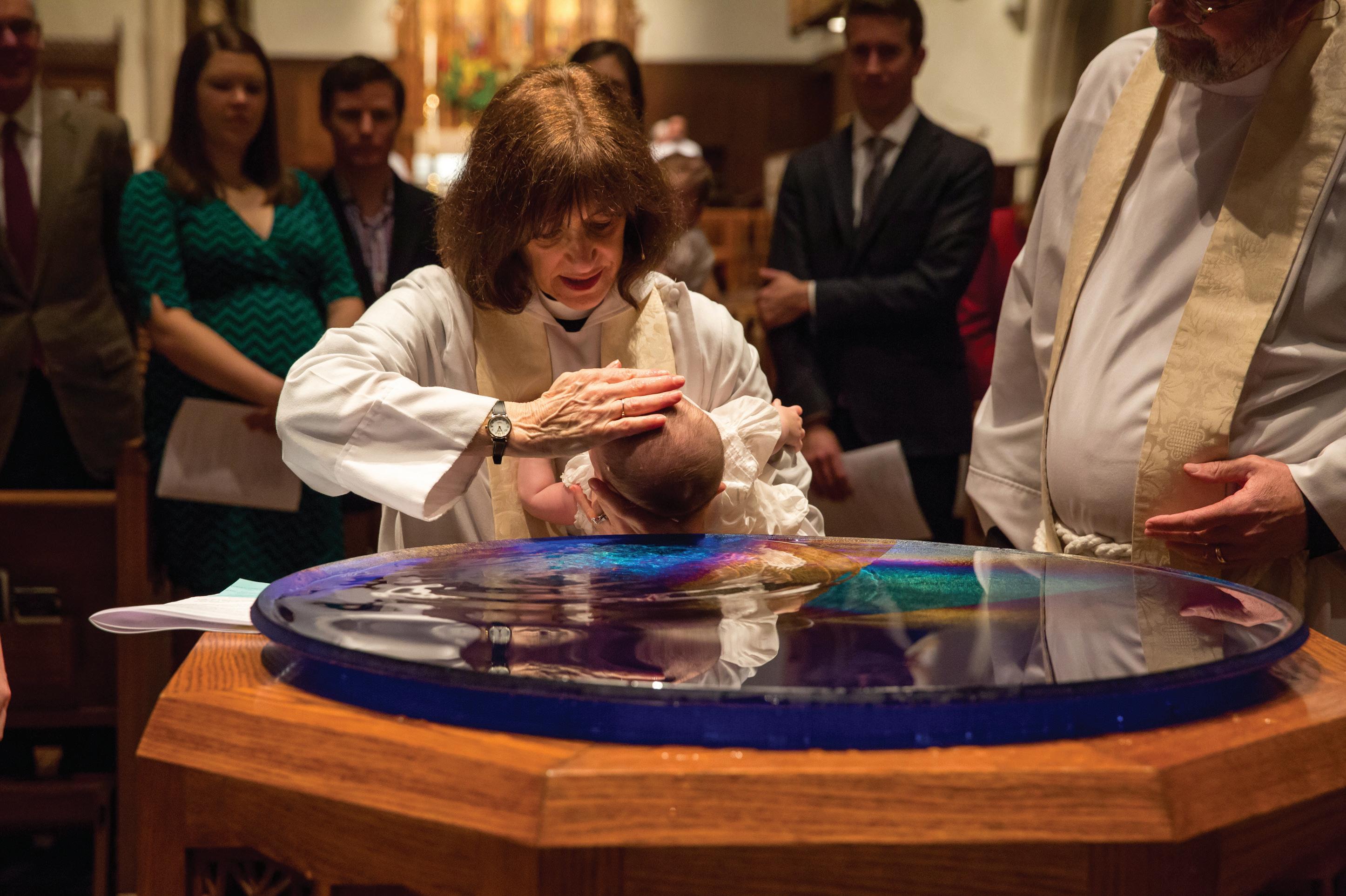
3 minute read
Being seen: youth ministry’s calling
Being seen
Our calling in youth ministry
When the Lord saw her, he had compassion for her and said to her, ‘Do not weep.’ LUKE 7:13
Earlier this year, the Centers for Disease Control and Prevention conducted a study exploring the longer-term effects of the Covid-19 pandemic on young people’s mental health. More than one in three high school students reported “persistent feelings of sadness or hopelessness,” a 40 percent increase from 2009.* The natural response to these alarming numbers is to point fingers at single issues such as social media, quarantine isolation, and familial anxiety. Alternatively, it’s a common mistake to chalk it all up to hormones or adolescent self-pity. No matter how complex the issues at play, there is no doubt that teenagers are riddled with constant expectations. Standardized tests, athletic events, the college admissions process (and the assumption that college is the path for all), social pressures: there are few spaces in life where teenagers are free from demands. This is where the church finds its place. Our call is to walk alongside young people, not as teachers, coaches, or parents, but as followers of Christ who see and acknowledge youth for their whole personhood. When we challenge ourselves to look at one another without presupposition or expectation, compassion will rise to the surface. If we put aside our own assumptions and anxieties about young people, we’ll find that they share many of the same sentiments adults do. In my time so far at St. Stephen’s Church, I’ve heard youth express a wide range of reservations about their place in the church. Some fear that hard questions about our beliefs are not truly welcome, while others share a sentiment that “church is just boring.” Our job is not to forcefully change anyone’s mind, but rather to offer a space where youth can be seen and heard exactly as they are. We are here to help them recover and reclaim their own unique sense of place in the body of Christ. This fall, we’ve begun a new approach to youth formation at St. Stephen’s. Our youth group gatherings now take place on Sunday evenings to reduce the time constraints posed by Sunday morning’s schedule. As participants enter the door, the first thing they do is drop their mobile phones into a bucket. This marks an entry into a time outside of time; a short break from the world of notifications that constantly divide our attention. After serving themselves from a buffet of hearty and healthy food, everyone finds a place at one of several long banquet tables. Time is built in to allow for extra conversation, and opportunities for second (or third) helpings.
By Ethan White
Young people gathered in the courtyard during a recent youth event.
Full group activities, games, and worship are balanced with time spent in three different small groups based on grade level. Following the Episcopal Church’s Journey to Adulthood model, these groups prioritize relational ministry and support young people as they discern God’s call in their lives. Dedicated adult leaders journey alongside youth as consistent and nurturing presences. Our church’s rich body of Scripture and spiritual practices illuminate all our activities and discussions.
Above all else, we strive for youth to feel seen, heard, and honored. When Jesus truly “saw” the widow at Nain in Luke’s gospel, he felt compassion for her situation, and she experienced a great miracle. If the young people in our midst are truly seen, they can shape our common life in miraculous ways.
All in grades six through 12 are invited to attend our youth group gatherings on the first and third Sundays from 6:30 to 8:00 p.m. For more information and sign-ups, please visit ststephensrva.org/youth.
*https://www.cdc.gov/healthyyouth/mental-health/index.htm










